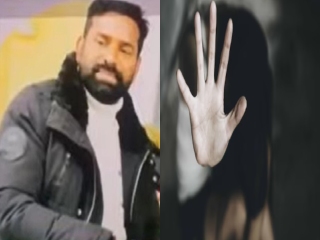 Republic Day is a national holiday that makes people aware of their national duties. According to the Indian Constitution, humans are given basic rights from birth itself. It is the responsibility of our Government to protect these rights.
Republic Day is a national holiday that makes people aware of their national duties. According to the Indian Constitution, humans are given basic rights from birth itself. It is the responsibility of our Government to protect these rights.
Fundamental rights are the basic human rights enshrined in the Constitution of India which are guaranteed to all citizens. They are applied without discrimination on the basis of race, religion, gender, etc. Significantly, fundamental rights are enforceable by the courts, subject to certain conditions.
If the Government is unable to protect these rights or violates them, we can seek justice from the judiciary.
The Constitution Drafting Committee had studied the Constitutions of many democratic countries at that time, including United States, UK, etc., to include fundamental rights in the Indian Constitution. These fundamental rights were then incorporated in Appendix 14-15-19-20-21 of the Constitution and the responsibility for their protection was handed over to the judiciary.
Nine Justices of the Supreme Court made an amendment to Article 9 and gave an important verdict that any law enacted by the Government will not infringe on the fundamental rights of any person; such laws will be included in the 9th Schedule of the Constitution.
The verdict also said that if a law enacted by the Government violates these rights, the judiciary may repeal the law contained in 9th Schedule.
Restrictions on fundamental rights at the time of Emergency
The country had declared a state of Emergency in 1975. This question was raised at that time. The Government at that time declared a state of Emergency and imposed restrictions on the fundamental rights. It also arrested millions of people for internal security reasons. Those arrested under the Act at the time filed a public interest litigation in the Supreme Court. However, the Supreme Court had refused to intervene in the political dispute, saying it was not in line with the law.
The Constitution makers had authorised the Government not to give some rights as it would create difficulties. The country’s administrative system was not strong after Independence. Therefore, it could not exercise this right competently. Hence, the Constitution makers termed some right as principle guidelines to some important rights and asked the Government to exercise these rights. The Government was asked to make these rights available to the citizens in the next 10-15 years after Independence.
No special efforts to give fundamental rights
The rights considered in the principle guidelines were for the welfare of the citizens. In a Democracy, it is like a fundamental right of citizens. Only the Government is bound to implement this right. The Government was supposed to implement these guidelines at the earliest possible.
The Government has a responsibility to protect the fundamental human rights. However, the Supreme Court and the Human Rights Commission are considered powerful. Many times these institutions have made some important historical decisions regarding fundamental human rights. Yet, the common man thinks that these institutions gave more importance to the upper-class citizens and this is against the fundamental rights given by the Constitution.
Education, water, health, sanitation, pollution control, etc. are the fundamental needs of citizens, which are human rights or basic needs.
Citizens were told that these would be given the status of fundamental rights in the next 15-20 years after Independence, the enactment of the Constitution on 26th January 1950. However, no special efforts have been made to make these right available as yet.
(Ref.: HinduJagruti.org)
Do this for India to become a Supreme Power !
- Perform assigned or accepted tasks honestly for at least 8 hours a day by using your full ability in the interests of the Nation. Instead of merely discussing any untoward incident, do something about it.
- Wealth of a corrupt individual must be confiscated from anywhere in the world, including Swiss Banks. Enact a law to sentence such traitors to death.

 Hindu youth in Udupi (Karnataka) beaten up and prevented from going to the Temple by fanatic Muslims
Hindu youth in Udupi (Karnataka) beaten up and prevented from going to the Temple by fanatic Muslims In Jashpur, Chhattisgarh, female students are being pressured to convert to Christianity at a Christian missionary-run college
In Jashpur, Chhattisgarh, female students are being pressured to convert to Christianity at a Christian missionary-run college Rape of a young woman by Pastor Jashan Gill in Gurdaspur (Punjab)
Rape of a young woman by Pastor Jashan Gill in Gurdaspur (Punjab) Young woman abducted and gang-raped by Muslims in Bengaluru
Young woman abducted and gang-raped by Muslims in Bengaluru In Bengal, unidentified persons set fire to a worship pandal and Deities Idols
In Bengal, unidentified persons set fire to a worship pandal and Deities Idols In Jashpur, Chhattisgarh, female students are being pressured to convert to Christianity at a Christian missionary-run college
In Jashpur, Chhattisgarh, female students are being pressured to convert to Christianity at a Christian missionary-run college